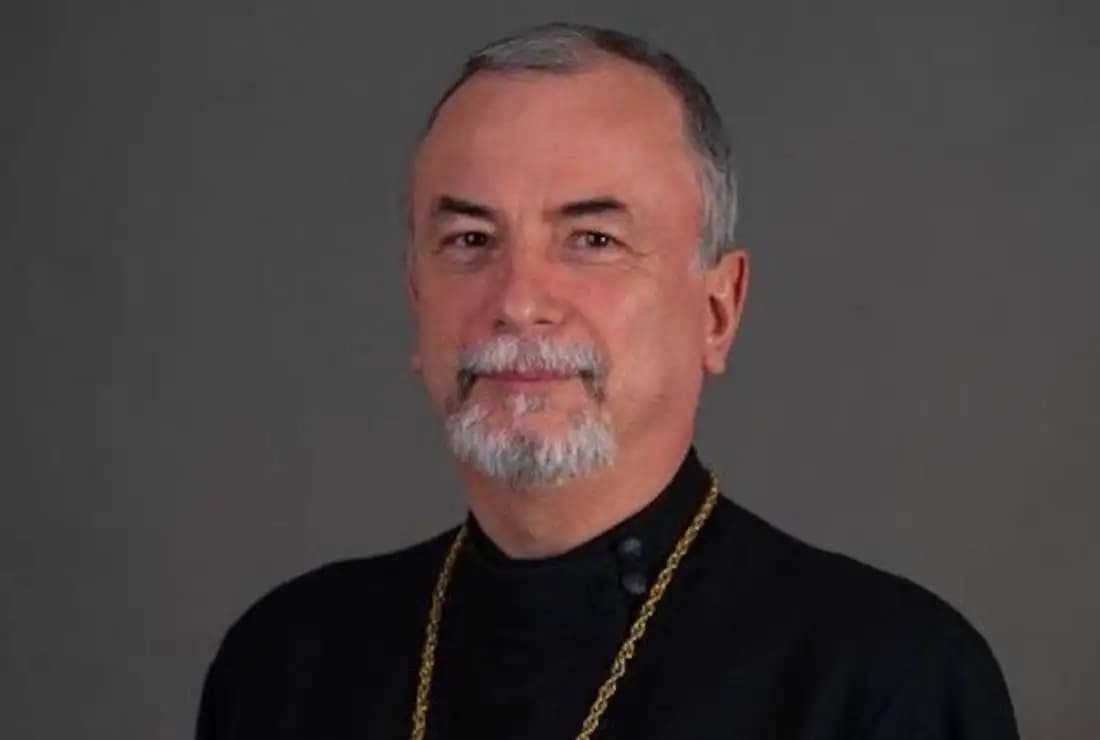MUMBAI – A papal delegate to the Syro-Malabar Church has made clear that his role is not to mediate a liturgical dispute that has left the church’s largest archdiocese effectively paralyzed for months, but rather to implement the controversial changes in the celebration of the Mass which have been approved both by the church’s bishops and the pope.
Early indications, however, suggest that the resistance which has so far blocked adoption of the changes in the archeparchy will not be easy to dispel.
“His Holiness Pope Francis has personally appointed me as his Delegate to the Archeparchy of Ernakulam-Angamaly with the purpose of helping the Archeparchy implement the Syro-Malabar Synodal decision on the uniform mode of celebration of the Holy Qurbana which is also approved by the Holy Father,” wrote Archbishop Cyril Vasil in an Aug. 5 letter to the people of the archeparchy.
Vasil, a Jesuit, is a bishop in the Slovak Greek Catholic Church and the former number two official in the Vatican’s Dicastery for Eastern Churches. He was appointed by Pope Francis on July 31 to try to resolve the long-running dispute in India’s Syro-Malabar Church.
“The matter of how to celebrate the Holy Qurbana has been a significant concern for our archeparchy and the entire Syro-Malabar Church in recent years,” Vasil wrote, referring to the Syro-Malabar Mass. “Resolving this issue peacefully and with generosity of hearts will enable us to focus on other important matters to which the Lord calls us.”
Vasil began his mission in India Aug. 7, with a meeting in Kochi, a city within the archeparchy, with five priests who discussed the liturgy issue with bishops who make up the synod of the Syro-Malabar church in January.
According to reports, during the two-and-half-hour meeting Vasil stressed that his task was to help the archeparchy introduce the uniform liturgy, “contrary to an earlier impression that he would hear both sides before reaching a decision on the liturgical issue.”
Vasil reportedly also met with members of a consultative forum of the archeparchy and former curia members.
When Vasil issued his Aug. 5 letter, he requested that it be read aloud during Sunday Mass the following day throughout the archeparchy, which is the largest jurisdiction within the Syro-Malabar Church. However, many parishes reportedly refused to do so, insisting that they will not accept the new liturgy.
“All the parishes of the archdiocese rejected the circular of the pope’s representative, Mar Cyril Vasil, which was issued with the instruction that it should be read in the churches of Ernakulam Archdiocese,” said Riju Kanjookaran, spokesperson of the “Archdiocesan Movement for Transparency,” a forum of priests, religious and lay people in the Archdiocese spearheads the protest against the uniform mode of Mass.
Another lay group in Ernakulam-Angamaly called Amaya Munnettam likewise said it rejected the circular letter because it was issued “without consulting the faithful, priests or canonical bodies of the archdiocese.”
The group also charged that while Vasil held his Vatican position, he “whitewashed” complaints against Cardinal George Alencherry, the leader of the Syro-Malabar Church, who has faced criticism not only for the liturgical changes but also his role in a series of controversial land deals. India’s Supreme Court recently refused to throw out seven criminal charges against Alencherry related to those transactions, meaning the 78-year-old prelate will have to stand trial.
Father Paul Thelakkat, a former spokesman for the Syro-Malabar Church who is now among the dissidents, told Crux that some 250 priests of Ernakulam-Angamaly met Aug. 8 and concluded that further meetings with Vasil are “not useful.”
“We do not find any meaning in talking to a person who has come with a fait accompli, with no compromise, and no discussion is possible,” he said.
In 2019, Thelakkat was one of four people charged with falsifying documents to defame Alencherry, a charge which he denies but which remains before an Indian magistrate’s court.
In his letter, Vasil asked that parishes, shrines, seminaries and religious communities in Ernakulam-Angamaly set aside an hour for Eucharistic adoration between Aug. 5-16, to pray for unity, and encouraged those who are willing to observe a day of fasting.
The liturgical dispute in the Syro-Malabar Church has been raging since 2021, when the Church’s synod decided to adopt a uniform mode of celebrating the liturgy, in which priests are to face the people during the Liturgy of the Word and then the altar during the Liturgy of the Eucharist, turning around again to address the congregation after communion.
Clergy and laity in the Archdiocese of Ernakulam-Angamaly have rejected those changes, arguing that their custom of the priest facing the people throughout the Mass is a legitimate liturgical variation and one more consistent with the reforms of the Second Vatican Council (1962-65).
Almaya Munnettam announced what they called a “Campaign for Justice,” effectively blockading the local cathedral basilica to prevent the new form of Mass from being celebrated.
In a recent letter to Crux, Archbishop Joseph Pamplany, who chairs the Commission for Media of the Syro-Malabar Church, blamed the uprising on a “presbyterocracy,” meaning a group of priests, “that reigns with all its might over the desire and opinions of the very vast majority of the lay persons in the archdiocese who would like to follow the synodal decision.”















